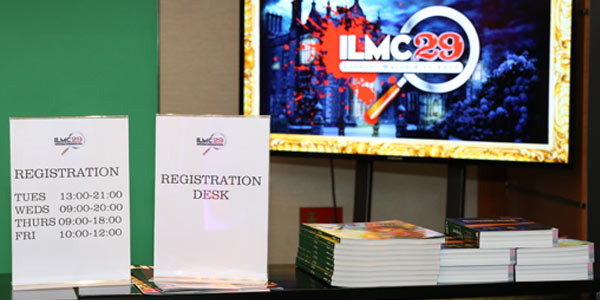Over 60 countries were represented, with delegates covering 35 different occupations – from promoters, agents and managers through to venue managers and ticketing professionals and everything in between.
Andrew Parsons, Ticketmaster UK Managing Director, took his place on Ticketing: the Survival Plan panel, alongside Rainer Appel (CTS Eventim), Geraldine Wilson (Amazon Tickets) and Paul Wilson (CAA). A huge amount of ground was covered – from if tickets count as a licence or a commodity (the answer depends on which link in the live music chain you are), to dynamic pricing, and if Amazon is a friend or foe for the live business. The panel looked at how ticket prices are set, how fees are applied, what the resale value is and how the house can be priced better.

Parsons talked about Ticketmaster’s API and how it is already linking into giant platforms like Facebook and Spotify to create a more connected experience, hinting that Ticketmaster are only getting started here. “This is a real game-changer for us,” he said. “This is a huge opportunity for us and is going to be a big focus for us in the coming year.”
Asked if, with interests in secondary, Ticketmaster was both gamekeeper and poacher, Parsons talked of the company’s recent initiative with Iron Maiden to use paperless tickets linked to IDs to stem reselling. He also talked about how Ticketmaster is using dynamic pricing and how it should be used more. The back rows of arenas are, he said, overcharged, while the in-demand tickets near the front are – in context – undercharged. They are seeing front-row tickets sell out immediately but huge sums in marketing have to be spent to sell those final tickets that are farthest from the stage. More experimentation with dynamic pricing would, he felt, fix this problem that has dogged the ticketing industry for years.
Ticketmaster’s Doug Smith (SVP Business Operations) joined the third Venue Summit session with Lucy Noble (Royal Albert Hall), Jane Beese (The Roundhouse), Paul Ryan (United Talent Agency), Stuart Galbraith (Kilimanjaro CEO) and Jason Zink (Emporium Presents talent buyer). The panel touched on several topics relating to the changing role of venues in the wider live music ecosystem, including self-promoting, ticketing and brand partnerships.

Discussion turned to the merits and drawbacks of venues operating their own box offices with Smith commenting that it’s up to venues whether they want to ticket their own shows, but by doing so they miss out on Ticketmaster’s “good technology line [and] huge market reach.”
“We want to assist you in selling out your venue,” said Zink, adding that venues have to be sure if they do go the self-ticketing route that they have the infrastructure in place to deal with demand. “We had a case last year – an arena show – where the website went down for an hour after on-sale. That’s not acceptable – if people can’t buy tickets when they want to.”
The conference finished in style with the annual ILMC Arthur Awards – the live music industry’s Oscars equivalent – where Live Nation cleaned up. International Group Counsel Selina Emeny won Most Professional Professional, Sarah Donavon took home The Peoples Assistant, Live Nation Belgium’s Herman Schueremans was crowned with The Bottle Award, and John Giddings won Second Least Offensive Agent.
We can’t wait to see what theme ILMC will pull out of the hat in 2018, until then…
Story by Mel Perrett







